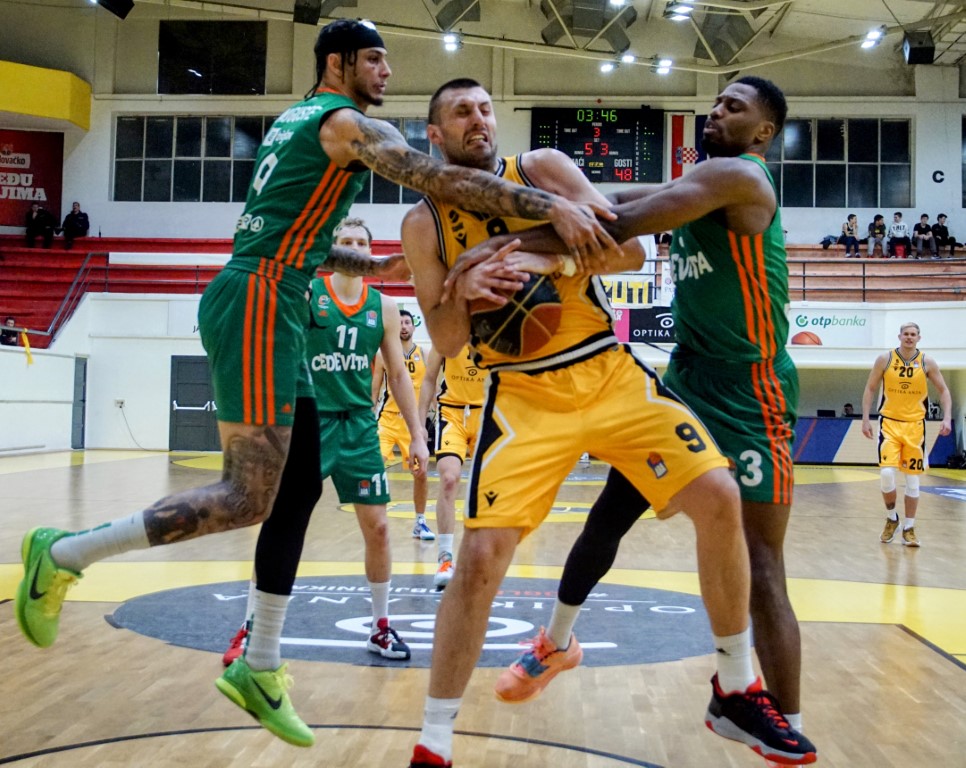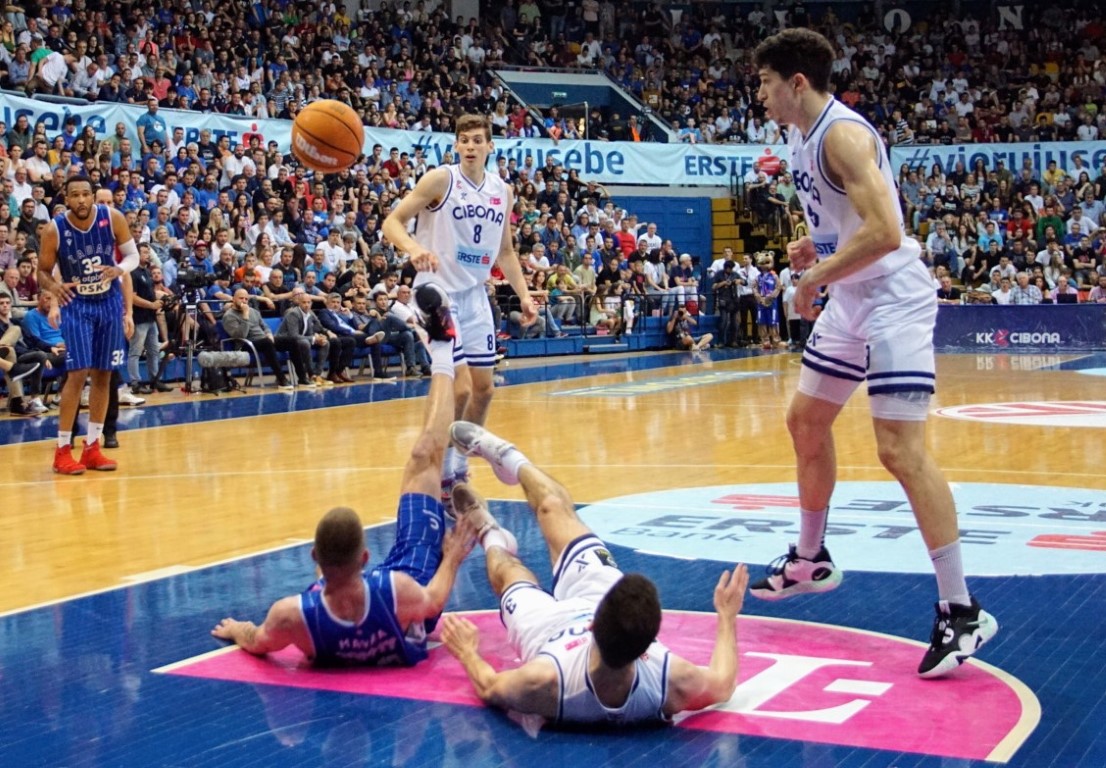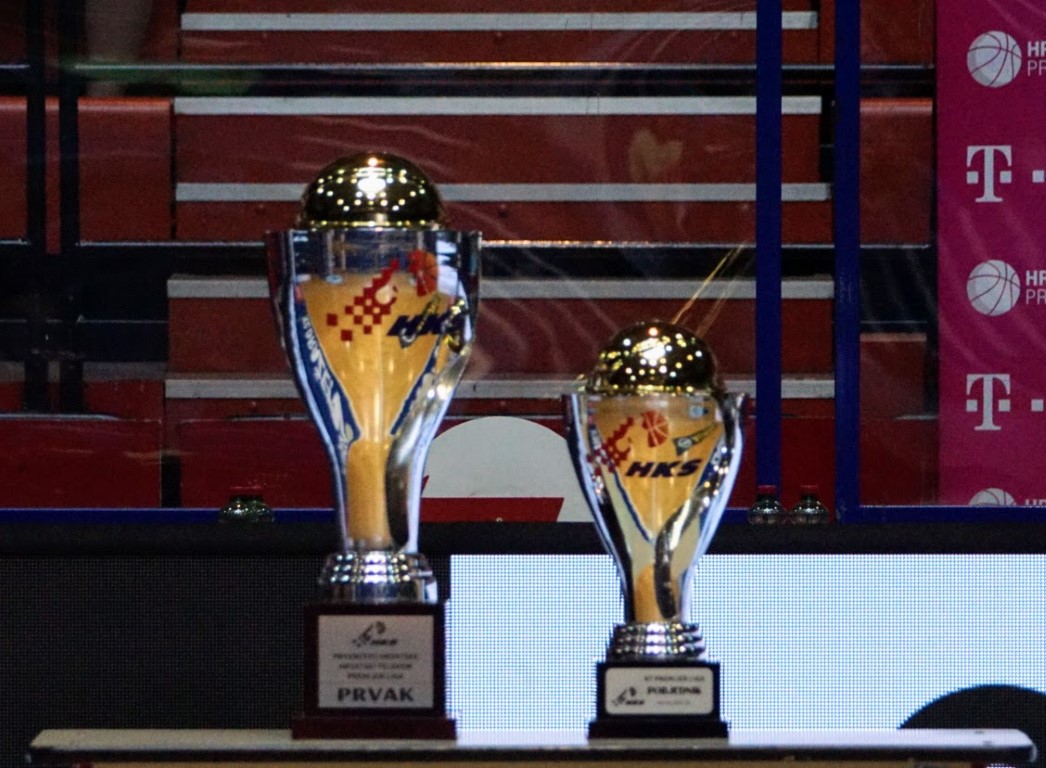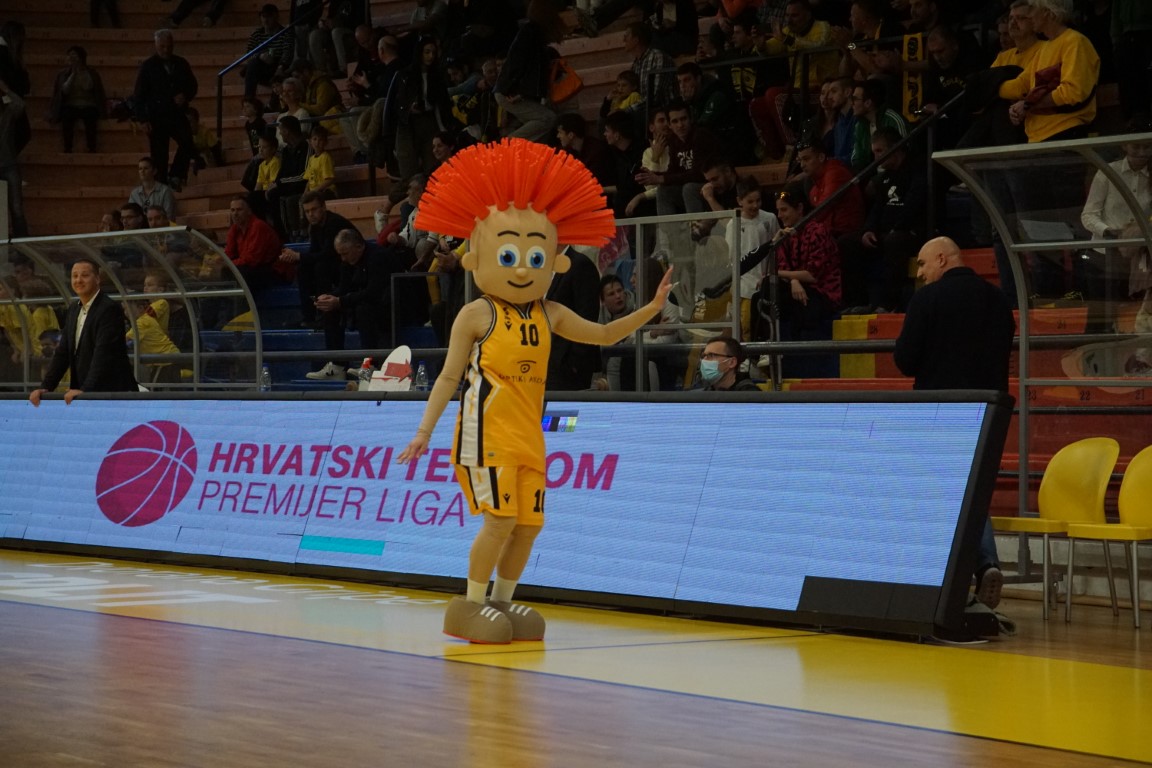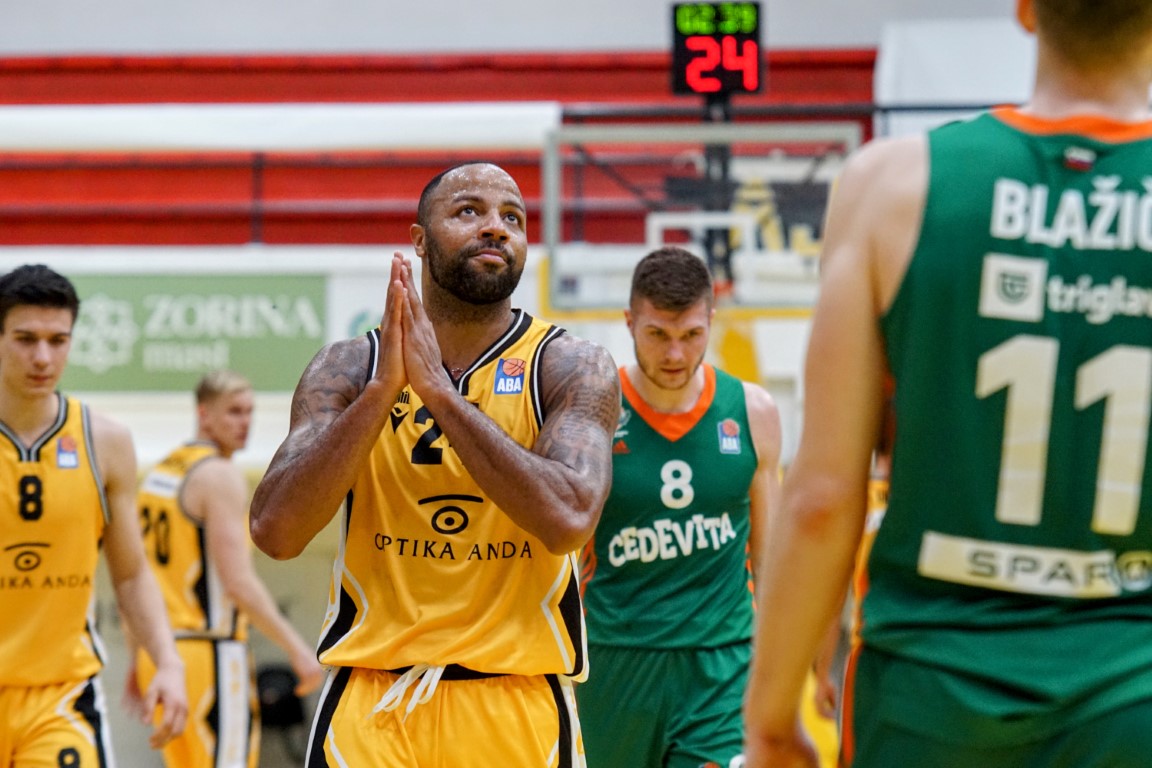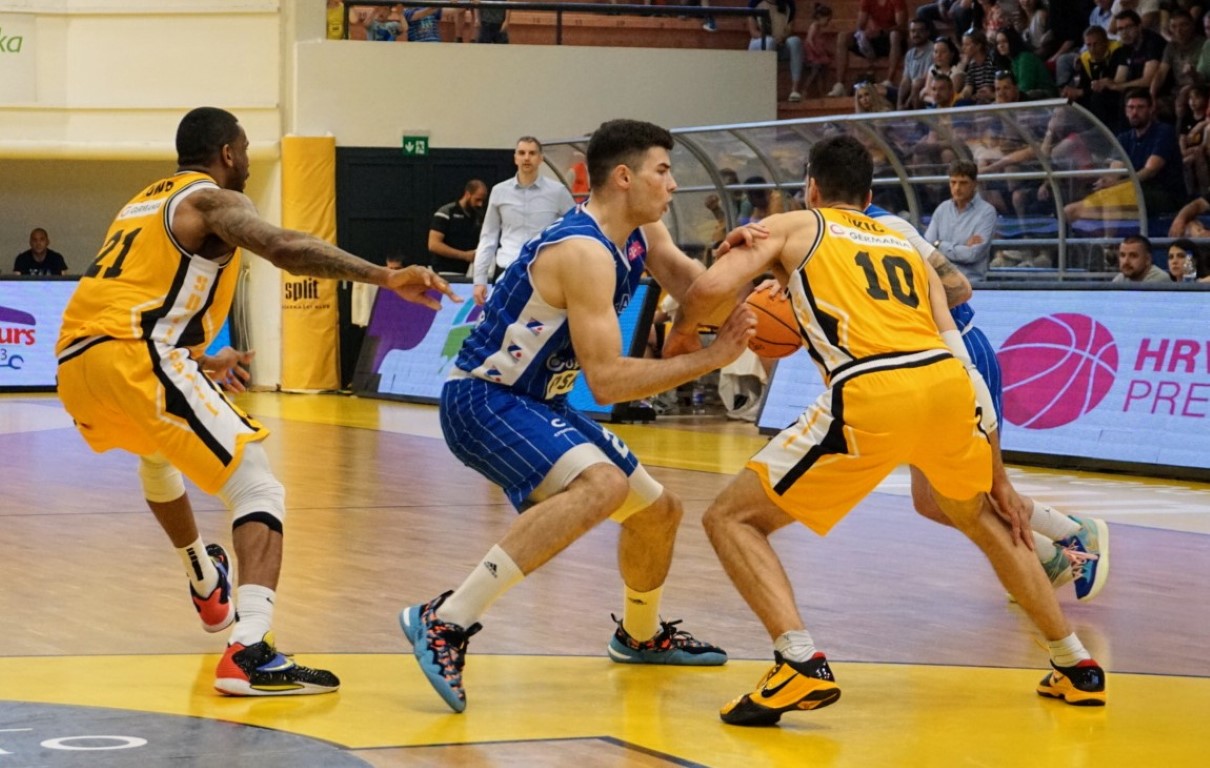KK Split is Up for Sale (Again)
Why it is not worth anything. Ništa. Not a single Lipa! (EDITORIAL)
Split, 23.08.2022 - The City of Split is again trying to find an investor for the Basketball Club KK Split. This time it is official. Read the invitation to tender here.
In the tender, the City of Split states the value of the shares which it offers for sale at 4'000'000 EUR, that's the shares it wants to sell, so they value the club at around 6 Million Euro, which is the amount at which all issued shares were handed out.
Our contributor Burak Canboy had considered to invest into the organization in 2013/2014 and has been covering the club for TCN during the last two seasons.
Here is his personal opinion on the value of the club and the politics going on right now.
EDITORIAL:
Let me say it out loud first. Those who don't want to listen to arguments may call me a traitor, a rich foreigner who doesn't understand Croatia, they may want me banished or may crucify me at the next game and then those who actually like to deal with the matter will hopefully read this opinion. In the current state, KK Split is not worth anything. Ništa. Not a single Lipa!
Now it is out. So, why do I believe the team that dominated the late eighties and early nineties, the big Jugoplastika Split that was officially named the best European club of the 20st century by FIBA is currently not worth anything? The club that resides at Gripe, a gym that was built mostly by the hands of its members. In a mecca of basketball that hosts the biggest trophies and most valuable jerseys in the "yellow salon". The club that is quite correctly called one of the most successful clubs in the history of European basketball. Winning three consecutive EuroLeague titles, two Korač Cups plus 3 Triple Crowns, 6 Yugoslav Championships, 5 Yugoslav Cups, 5 Croatian Cups and 1 Croatian Championship. A club that competes in the prestigious ABA League and plays for championships in the Croatian National League. A club that created greats like Branko Radović, Ratomir Tvrdić, Toni Kukoč, Dino Rađa, Žan Tabak, Petar Skansi, Velimir Perasović (please forgive me that I did not list everyone, it is a very long list).
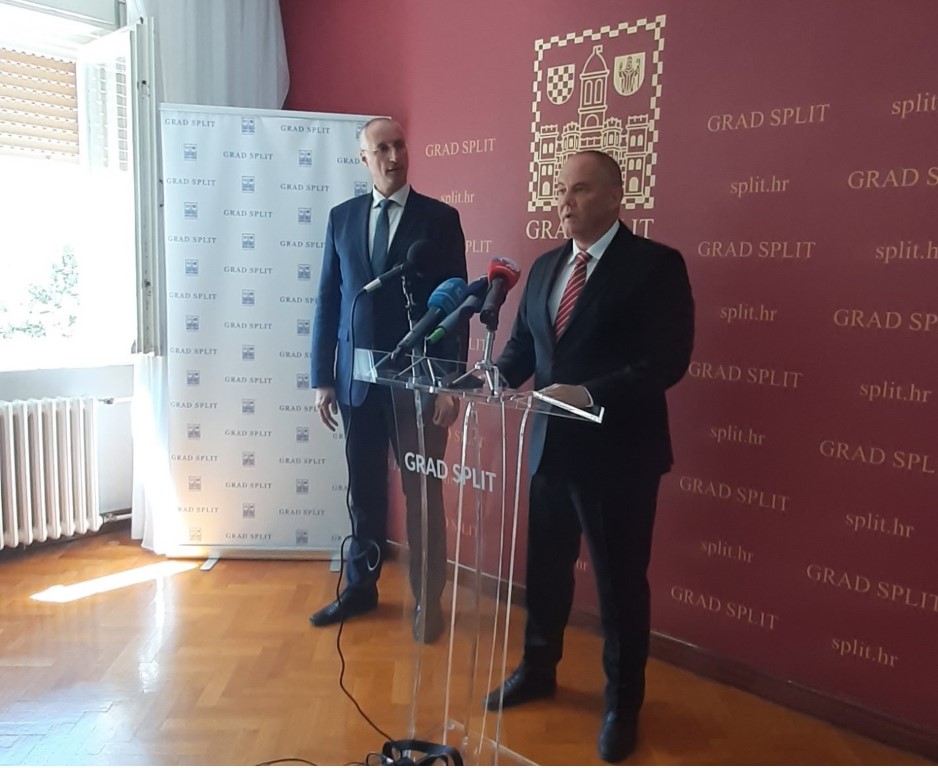
Mayor Puljak and Deputy Kuzmanić presenting their ideas for KK Split (Photo: Grad Split)
Well, in the world of business there is a word for value that cannot be measured by the sum of its assets. It is called "goodwill" or "value of intangible assets". When you look at the world's largest companies with high goodwill, Coca Cola used to be the example in the nineties, today it is companies like Microsoft and Amazon that mainly consist of value which stock markets assess because people are willing to pay more per share than the sum of assets listed in their balance sheets, divided by the amount of stocks issued. Where there is goodwill there is also the opposite. Companies worth less than their sum of assets. You hear stories of companies given away for a dollar sometimes but more often than not, those companies are not even worth the dollar. They disappear more or less silently because nobody wants to risk renovating, restructuring and rebuilding such companies.
Now that I have given a short excursion to the business world in the US, let's get back to Europe, the Balkans (or as some people like to call it Southeast Europe nowadays), Croatia, Dalmatia, Split, Gripe, KK Split. There is a reason why I am listing them in this order. but all of these have a reason why the club is not worth anything. Ništa. Not a single Lipa!
European Union:
Let's start with Europe. During the Global Financial Crisis of 2008, which became a european financial crisis in the years after and lead to Greece being put under financial supervision (which just ended a few days ago btw.), some people started to wonder how football clubs and to some extent also basketball clubs in Greece could have such huge budgets if the country is basically bankrupt. Clubs like Panathinaikos, AEK, Olympiakos and PAOK were very successful in Europe and globally known to be paying very good salaries, frequently bringing in players from the NBA or stopping players from going there.
This was not just an exclusively Greek behavior, but also quite normal in Italy, France and Spain and obviously also in most other european countries, but they are not so well known for their well paying leagues. The spotlight was just shining brightest onto Greece, while Europe wanted to stop waste of taxpayers' money.
CEDEVITA: Money goes to Slovenia now (Photo: Burak Canboy)
The clubs and local governments had become so intertwined that big parts of the clubs' budgets consisted of money being transferred from the governments to the clubs declared as "sports education", "funds for sports equipment ", "youth support", "tourism support", "business growth support", "gym maintenance " and many other creative ways. While all these can be very much in the interest of the public and are surely worth spending public money for, in most cases that money was not used for that purpose, but for the running expenses of an internationally competing professional team. This practice has been deemed illegal by the European Union and is considered a "preferred subsidizing of business". Now, the City of Split has been very creative as well in the past years, but it is quite obvious that continued participation in the ABA League and playing for championships in the croatian league would not have been possible if all salaries, participation costs and travel expenses of the professional team had had to be paid for by income from TV broadcasting rights, ticket sales, sponsors and other revenues such as sale of merchandise. During the last years the club had over and over accumulated losses that the city had to cover by increasing the capital of the club. Now, creative as it may be, in the end it is the exact behavior that the EU wanted to stop. Now, if the club did not have money coming from the city, it would be bankrupt. Worth nothing. Ništa. Not a single Lipa.
Balkans/Southeast Europe:
Yugoslavia the former world force in basketball is shattered. Romania, Bulgaria, Albania were never really big. Bosnia & Hercegovina 45th in the world, Kosovo 71st and North Macedonia 52nd play no large role, Croatia as described later is in a free fall. Serbia (4th), managed to re-establish some of the former glory, Montenegro is a recent positive surprise (25th) and Slovenia is a rising star (3rd), but in general basketball business at successful clubs is mostly run by dubious owners/presidents or player agencies often enough operating in dark grey areas of the law and federation regulations (surely nobody wants to see KK Split becoming a front for some completely illegal business). In countries that are non-EU, strong government funding is still predominant. And if you watched the finals of this year's ABA League between Partizan and Red Star you got to see how some fans like to use the game to show how ugly and disgraceful sports can be.
Extra value for the club: Ništa. Not a single Lipa.
Croatia:
The national team could not even pass a group with Finland (35th in the world) and needed 2 overtimes to barely beat Sweden once (51st in the world !), and now rightfully has to play in a group with Switzerland (world's 60th) and Austria (61st) to re-capture just the opportunity to qualify for the World Cup in 2025.
Zadar and CIBONA on the floor? (Photo: Burak Canboy)
KK Split's competitors in the national league
- CEDEVITA, has seen the big money move to Slovenia.
- CIBONA is clinically dead, pretty much bankrupt, kept alive with tax payers' money and/or lack of transparency.
- KK Zadar is clinically dead, kept alive with tax payers' money and/or lack of transparency.
Most other clubs in the croatian league are - yes you guessed it right - clinically dead, kept alive with tax payers' money and/or lack of transparency.
Apart from that, favoritism amongst coaches, referees and other officials more often than not stand in the way of effectively developing national talents.
Extra value for the club: Ništa. Not a single Lipa.
Dalmatia:
Turizam, Turizam i Turizam. Do I need to say more?
Croatian Title Trophies. Too far to reach? (Photo: Burak Canboy)
Dalmatia lacks large global or at least international companies that can use a basketball team as their "travelling signpost". When you look for big clubs in Europe you will find Efes, Beko, Armani Exchange, ALBA as sponsors carrying weight for successful clubs or you find teams like Real Madrid, FC Barcelona and FC Bayern Munich profiting from the groundwork, their football clubs have done in finding sponsors and building a name for the organization.
Lack of potential large sponsors, preoccupation with a single economy. Extra value for the club: Ništa. Not a single Lipa.
Split: Politics and Hajduk
The City of Split created an unprofessional presentation for the tender (no assets listed, very short time given for due-diligence, no contractual obligations listed, no own concept or ideas presented). So either some back-room deal is already made or the responsible people think they can find an idiot who is willing to buy the pig in a poke, or as they say elsewhere, buy the cat in a sack.
Then you should not forget that there is already a major power house in town. Football is King and in Split the King is called Hajduk. Instead of trying to benefit from the big brother, a separation is being forced and Torcida named unwanted guests on Gripe.
Lack of potential large sponsors, presence of an overwhelming football power means a lack of positive future paired with involvement of politicians in a business. Extra value for the club: Ništa. Not a single Lipa. (For the involvement of politicians this number should be very large. But negative!)
Efforts in Vain on Gripe? (Photo: Burak Canboy)
Gripe:
Despite wonderful gyms being available in the city like the two larger gyms on Gripe, the small court under Spaladium Arena, the gym at the Pool on Poljud, Spaladium Arena and probably others I don't even know, KK Split continues to practice at Gripe. The home court advantage is canceled out by the limited usability of the space and the poor condition of the building. It is not possible to have multiple teams practice in the gym at the same time. The space in the back of the gym that Dino Rađa helped to renovate a few years ago is good for individual training but overall the layout of the gym is miserable for a basketball club with ambitions.
The building's energy efficiency is terrible, operating costs, high. Existing tenants have been there forever and are probably paying below-market rent.
If the city does not spend considerable money to renovate the gym and give a reasonable long term concession, the extra value for the club: Ništa. Not a single Lipa.
Unless we go back to the plans of Ivo Baldazar or Željko Kerum to sell all or part of Gripe to some real estate investment company and to have them take care of the club in return. But still the value of the club remains: Ništa. Not a single Lipa.
Yellow Salon:
This is a cultural item. It cannot be transferred to a new owner. It has value as a museum. It has value for the city, for the citizens, for the players, for the employees of the club. It should be moved to a place where everyone has access to it. It cannot and should not be transferred to an investor because Cups and Medals cannot be bought.
Value for an investor: Nothing. Ništa. Not a single Lipa.
K.K. Split:
The club has a very long history of not being able to operate profitably. The last administration was not long ago and not much seems to have changed since then when it comes to control, supervision and direction. A long history of mismanagement and even what may be called accepted corruption and embezzlement when it comes to how talented players were treated. Surely Dragan Bender's and Ante Žižić's move to Maccabi with Nikola Vujčić were not "kosher" but nobody was interested in suing for damages. While thinking about things that went missing: the whereabouts of the Korač Cup that disappeared from the Žuti Salon is still not known. Is it?
Shannon Shorter praying for help (Photo: Burak Canboy)
K.K. Mislav a small club without a gym in Podstrana just had the second player go abroad (Tomislav Buljan just moved from Zadar to Spain after Stipe Jelić had already left for Italy in 2019). How many talented players has K.K. Split produced that went abroad. Let's say there are more than Perković and Perasović, but how much money has been paid to the club for players leaving during the last 20 years?
How many young players in the current roster have long term contracts that may lead to income from a sale at some point in the future?
Sorry to say, but the only value in the club is the right to play in ABA League and the croatian first league. But again, what is that worth without the city's subsidies?
Yes. Nothing. Ništa. Not a single Lipa.
Opportunities:
Now, when could an investment into the club make sense? When the city and all people involved understand that the value of shares is nothing. Ništa. Not a single Lipa.
Once that is understood, the company can process the opposite of a recapitalization, a capital reduction. When all existing shareholders have their shares reduced to a value of close to zero or zero, and all existing debts have been cleared, then you can start a fair partnership by raising new money. If the city then wishes to have a 25%+1 controlling share, it will need to invest at the according rate, as a new investor would. Twice as much, if the city of Split wishes to keep 50% of shares.
A sample mission & vision for the club was already gifted to the club and the city in 2014. Look for yourself how much of it has been adopted and how much more needs to be done before you can call the club valuable: KK Split Mission & Vision 2014
"Grado" and his boat "Žuta ljubav"
To give a more local comparison of how the City of Split calculates the value of the club, I will explain by using the example of a boat and a fisherman. Now, at some point in the past, someone sold a boat named "Žuta ljubav" to a local fisherman who wanted to take tourists to beautiful bays that you could only reach by boat. The fisherman was called Grado because he could exactly tell the temperature to the tenth of a degree. The boat was old but it was a wonderful boat. It used to be quite a beauty back in the days. The design had aged well and it was still floating. It could sail near the coast and even a little further out but no longer in blue waters as it once did. "Žuta ljubav" needed a lot of crew to operate and a lot of maintenance, because former owners had taken away important parts and just replaced them with whatever they could find for cheap. Every year, the boat needed an expensive crew to operate, it needed new sails, the engine needed to be repaired, leaks needed to be filled and all moving parts needed to be serviced. The berth needed to be paid. And despite all the work time and money put in, it never looked as good as it once did and always barely stayed afloat because Grado could not afford a full renovation. Even though the boat used to drive people around and conducted business, every year the owner needed to add money from his own pocket. Sometimes more, sometime less.
Tomislav Buljan: From Podstrana to Zadar to Spain (Photo: Burak Canboy)
After years of losing money Grado became tired of taking care of "Žuta ljubav" and asked his oldest son if he wanted to have the boat. He declined, so did his second son and his youngest son. They didn't tell their father the real reason because they were afraid he may be disappointed and die from sorrow. The oldest used his family as an excuse and said that he needed to keep his stable job. The second son said he could not swim and the third wanted to become a musician. So one day Grado took his sorrow to his neighbor and friend Stino. Stino who was known to be brutally honest, gave him a glass of Orahovac and a big glass of cold water. "Enjoy the Orahovac" he said, "you will need the cold water later." "Why?" asked Grado. "Well, my dear friend. Love has made you blind. You have spent so much money on your boat during the last years, and you think it is worth a lot, because you have spent so much time and money on it. But today after almost 6 million Euros spent, it still barely floats, it still costs you a fortune to operate and maintain and even if you didn't use it, you would still need to pay for the berth. Your sons love you too much to tell you, but you managed not to sink the boat, instead you have sunk all your money. No-one will buy your boat, because it barely stays afloat and doesn't make any profit. My friend, when you open your eyes, you will understand that the value of your boat, even though it floats, is zero. Nobody who knows the slightest bit about boating would buy it. If you paid someone to take it, maybe you can get rid of it. But if you ever want to make money selling it, you need to first either spend a fortune renovating it or at least make it profitable. So profitable that you can easily pay the crew, the maintenence, the berth, everything and have money left at the end of the season so you can enjoy a long winter without having to work. Then my friend it will still be hard to sell an old boat, but at least it will be a profitable business. But now it is not worth anything. Ništa. Not a single Lipa." Grado finally understood and when the truth arrived, it hit him like a truck, but at least he still had the small joy of a cold glass of water to look forward to.
Still don't believe me that the value of the club is nothing? Ništa? Not a single Lipa? Well, just go ahead and ask any of the employees of the club to reduce their salary by 50% and give them the rest of salary in shares. Or you could even ask Mayor Puljak and Deputy Kuzmanić who are trying to sell the shares, if they would agree to have their salaries in the next 4 years paid in shares of K.K. Split instead of money. I dare anyone to come forward and say that they would prefer to be paid in shares of KK Split than in Kuna. Guess how many would agree to that and what they would probably say: The shares are worthless, because the value of the club is nothing. Ništa. Not a single Lipa!
The views of the author are not necessarily the views of TCN.
Coalition Partners: Marić One of Most Successful Ministers, With Few Mistakes
ZAGREB, 6 July 2022 - The ruling HDZ party's coalition partners said on Wednesday that the resigned Finance Minister Zdravko Marić was one of the most successful ministers who had led Croatia into the euro area and who had results, with just an occasional mistake.
Speaking to reporters ahead of a meeting of parties making up the parliamentary majority, Reformists leader Radimir Čačić said that Marić had done his job excellently and had results to show.
Čačić: Number of excellent results, guarantees a failure
"His results are entry to the euro area, the country's improved credit rating and debt stabilisation, which is very important. However, he also made big mistakes, such as the billions of kuna spent on guarantees for shipyards. He obviously could not say no to that," he said.
Speaking of Marić's successor Marko Primorac, Čačić said that he lacked experience in the private sector, which could pose a problem.
"The new minister understands public finance but he has no experience in the real sector. It is one thing to read about football, and another to play it," he said.
Hrebak: Politicians are not robots
HSLS leader Dario Hrebak said that there was nothing mysterious about Marić's departure.
"If he feels that he has done his best, that there are no more challenges, that his ambitions have been fulfilled, then his move is responsible. Marić has kept the financial system stable, weathered all crises so far and in a few months we will be joining the euro are," Hrebak said, commending the minister for tax reforms, which, he said, made him the country's best finance minister.
"But politicians are not robots, they have emotions and plans. He has been doing a very responsible job for more than six years for a salary that is 4-5 times lower than what he could have earned," he said, noting that Marić's successor would have enough time to acquaint himself with the system and prepare for the challenges expected in autumn.
Čuraj: Personal, family reasons
The HNS party leader and state secretary at the Finance Ministry, Stjepan Čuraj, said that he believed the reasons why Marić had resigned were personal and had to do with his family.
He noted that the finance minister's job was not very rewarding and that the salary did not match the amount of responsibility.
Six years is a long period, he has made results and has something to leave behind, Čuraj said, adding that the new minister was an expert and that he had operational experience as a member of supervisory bodies.
For more, check out our politics section.
Opposition Says VAT Cuts Welcome, but Late
ZAGREB, 17 March 2022 - The government's proposal to cut VAT on food and gas is welcome but late and insufficient, the parliamentary opposition said on Thursday, while the ruling HDZ said the cut was timely and that it would help citizens weather the price rises.
"The government's proposal is going in the right direction, but the fact is that it's late and it's not enough," Social Democratic Party president Peđa Grbin said ahead of a debate on amendments to the VAT Act whereby the government wishes to buffer the energy price hikes and protect living standards and the economy.
Grbin said the government should introduce other measures, too, and asked what it was doing to ensure incentives for enterprises so they could work in these crisis times.
Marijan Pavliček of the Sovereignists said they mostly agreed with the government's measures but asked why the amendments to the VAT Act did not go into force on 1 March.
"This blow is unbearable and the government should have reacted much sooner and much stronger," Nikola Grmoja of Bridge said, calling on the government to further cut excises on fuel.
Stephen Bartulica of the Homeland Movement said this was too little too late and that the government reacted only when it absolutely had to.
Marin Lertoić of the Istrian Democratic Party said they supported any relief of households and businesses.
Grozdana Perić of the HDZ said these amendments would help citizens weather the energy price hikes and that over the past six years the government had found solutions to crises and stabilised public finance.
The opposition fears that the VAT cuts on key foodstuffs and gas will not result in lower food prices.
Davor Bernardić of the Social Democrats said that when VAT was cut in 2018, food became more expensive.
He said foreign retail chains would have discounts for a week and then prices would soar, adding that Finance Minister Zdravko Marić would be responsible for millions of kuna ending in the pockets of foreign retailers, just as it was in 2018.
The government has proposed reducing VAT from 25% and 13% to 5% on children's food, edible oils and fats, butter and margarine, live animals, fresh meat and fish, vegetables, fruit, eggs, seedlings, fertilisers and pesticides, fodder for animals, and tickets for concerts, sporting and cultural events.
The government also proposed a 13% VAT rate on natural gas supplies and heating from power stations, firewood, and menstrual products, among other things, and a 5% VAT rate on natural gas deliveries from 1 April 2022 to 31 March 2023.
The VAT cuts are estimated at HRK 2.1 billion.
For more, check out our politics section.
Dunja Magaš to Head Construction Ministry Until New Minister is Appointed
21 February, 2022 - Until a new minister is appointed, state secretary Dunja Magaš will head the Ministry of Physical Planning, Construction and State Assets, Prime Minister Andrej Plenković decided on Monday.
Prime Minister Plenković decided today that the state secretary in the ministry Magaš will manage the ministry until a new minister is appointed, government spokesman Marko Milić told Hina.
The prime minister's decision comes after Horvat stepped down in the wake of being arrested and being remanded in custody, accused by the USKOK anti-corruption office of abuse of office and powers.
With reference to Deputy Prime Minister Boris Milošević's resignation, the government referred to Plenković's statement on Saturday that ministerial positions were always in the remit of the prime minister, from the very first day, as they are in these circumstances, which also applies to Labour Minister Josip Aladrović and Milošević.
SDSS president Milorad Pupovac said earlier today that Milošević had tendered his resignation after unofficial information that he is suspected of being involved in a scandal of currying favour in issuing grants.
The government confirmed that a meeting of the parliamentary majority would be held on Tuesday to discuss the current political situation, adding that the parliamentary majority is firm and stable and there would not be any snap election.
The presidency and national council of the Croatian Democratic Union (HDZ) are set to meet later today.
Left-Liberal Opposition Calls for Snap Election
21 February, 2022 - Left-liberal opposition MPs on Monday called for a snap election, announcing that they would sign a motion for parliament's dissolution following Minister Darko Horvat's arrest and an investigation into Deputy Prime Minister Boris Milošević.
The left-liberal opposition assessed Prime Minister Plenković's statement on Saturday, after Horvat was arrested on suspicion of illegally awarding HRK 2.6 million in grants, as scandalous and unprecedented pressure on the judiciary.
Addressing a press conference on Saturday, Plenković called out the State Attorney's Office (DORH) to explain its action regarding Horvat to the public, saying that it was disproportionate and that the timing of the arrest was odd.
Jakšić: SDP was the first to call for a snap election Saturday
SDP MP Mišel Jakšić said that his party was the first on Saturday to call for an early election. "The opposition has to show a high level of responsibility in this regard and that is for us to go together towards the objective of an early election and in that way show citizens that a country where ministers are arrested is not normal," he said.
Commenting on media reports that Milošević's arrest was halted at the very last moment, Jakšić said that the SDP had been concerned for quite some time now about leaks in investigations.
"We are quite concerned that there may have been some sort of bargaining," the chairman of the parliamentary Judiciary Committee said, announcing a thematical meeting of the committee this week to discuss whether pressure had been exerted on the judiciary because "Prime Minister Plenković had a very ugly attitude towards DORH and USKOK (anti-corruption office)."
If it turns out to be true that Milošević's arrest was halted by political pressure then that is a bad message, said Jakšić.
In a situation when he has to worry about the pandemic, energy crisis and post-earthquake reconstruction, the prime minister has to worry about who else might be arrested tomorrow, and that cannot be the way to lead the country, MP Ivana Kekin said.
"The only solution is an early election," she said, adding that everyone in the opposition, with the exception of Hrvoje Zekanović, seems to think that there should be a snap election. She stressed that a government reshuffle was out of the question.
"It's high time the prime minister faced the truth that his government is not functioning," concluded Kekin.
Puljak: Entire opposition should be untied in supporting Bridge motion to dissolve Sabor
Marijana Puljak (Centre) said that her parliamentary group would certainly support an early election during this greatest crisis for the country in the past decade.
She believes that the entire opposition should support Bridge's motion to dissolve the Sabor regardless of different views.
PM Plenkovic Reveals Inflation Measures: Lower VAT on Food, Fuel...
February the 17th, 2022 - PM Plenkovic has revealed the Croatian Government's highly anticipated inflation measures to try to curb the negative effects globally rising prices are having on the domestic economy and as such on the country's residents.
As Poslovni Dnevnik writes, PM Plenkovic has stated that Croatia's inflation measures will be put into force as of April the 1st this year.
"The current global rise in energy prices has caused a wave of rising prices across Europe. Fuel prices in Europe are rising due to higher demand after the coronavirus crisis, the second reason is the situation with Russia, which is the largest supplier and has reduced production, Norway can't increase its production, in Europe there is higher demand due to recovery and colder winters. 43% of European gas comes from Russia, 23% comes from Norway, 11% from Algeria. Europe imports 61% of its total energy needs and 90% of its gas needs, which accounts for 21% of energy consumption,'' said PM Plenkovic, adding that the package of measures will be in force from the aforementioned date.
“The average price is 120 mW / h, 2.7 times higher than in Croatia. In Croatia, we had a system in which the prices were regulated for a year. If it weren't for this intervention, the prices for electricity would increase by 23 percent from April the 1st, and for gas, by 79 percent ", he emphasised.
"The package we're presenting today is worth 4.8 billion kuna. It was done systematically, in coordination with all ministries and bodies. It applies to households, companies and farmers. It's universal, meaning it's aimed at all users. It refers to the reduction of household bills, tax relief, one-off benefits for pensioners, a special programme for fishermen Gas prices will grow to a maximum of 29 percent with these measures in place. As far as gas is concerned, if we did nothing, 0.326 kW / h would jump to 0.574 kuna. When we reduce VAT, we arrive to 0.482, and with an additional subsidy we come to 0.382 kuna per kW / h,'' said PM Plenkovic.
''These benefits will apply to all households that use gas. The amount of support directly on the bill is 10 lipa per kilowatt-hour. The amount of the discount is shown on the invoice with a separate item. The cost of this measure is 600 million kuna, and we'll provide it by selling greenhouse gas emissions at auction. By changing the law, we'll permanently reduce the VAT on gas and heating from 25 percent to 13 percent. This equalises the VAT on electricity and gas and thermal energy,'' he added.
Gas will be reduced from 25 percent to 5 percent from April the 1st, 2022 to March the 31st, 2023.
VAT on food is also being reduced from 13 percent down to 5 percent on fresh meat and fish, eggs, fruits, vegetables, edible oils and fats, baby food, agricultural costs, seedlings, fertilisers and pesticides, and from 25 percent to 5 percent. percent on butter and margarine. VAT on products such as sanitary pads and tampons is also being reduced from 25 percent down to 13 percent. VAT on tickets for sports, cultural and other events is also being reduced from 25 and 13 to 5 percent.
The amount of vouchers for the most vulnerable in society is also being doubled, increasing from 200 to 400 kuna.
For more, check out our politics section.
Croatia-Saudi Arabia Relations Intensifying, Government Says
ZAGREB, 16 Feb 2022 - Croatian Prime Minister Andrej Plenković met with Saudi Arabia's foreign minister, Prince Faisal bin Farhan Al Saud, on Wednesday the government said in a press release.
The two officials reaffirmed the good relations between Croatia and Saudi Arabia, which the opening of embassies in Zagreb and Riyadh is expected to intensify.
Plenković and Prince Faisal expressed readiness to organise a Croatian-Saudi business forum.
They also discussed the situation in Bosnia and Herzegovina, with Plenković saying that key for its prosperity and European future was that it was a stable country where the equality of the three constituent peoples was honoured.
The two officials also discussed the current situation on the energy market and the possibility of developing cooperation in energy.
For more, check out our politics section.
SDP MPs Grbin and Bauk Champions in Using Parliamentary Perks, Jutarnji List Daily Reports
ZAGREB, 16 Feb 2022 - Social Democratic Party MPs Arsen Bauk and Peđa Grbin have mastered the art of utilising all perks available for legislators, Wednesday's edition of the Jutarnji List daily reported in an article.
Although both MPs have lived in Zagreb for more than 10 years, including have their families living with them, partners that are employed in Zagreb and children born in Zagreb, neither of them has changed their residency. Bauk is still registered on Brač Island, while Grbin in the City of Pula.
The Sabor is paying their rent in Zagreb and both of them are paid tens of thousands of kuna for travel expenses to and from Brač and Pula. Until a month ago, Grbin was even paid a "living away from home allowance" (LAFHA), which he has now renounced so he can enrol his child in a kindergarten in Zagreb.
In the fifteen years that Bauk has been a member of parliament and office-holder, he has managed to deposit about HRK 5.5 million kuna in his bank account and about 40% of his income or HRK 627,000 (€82,919) is deposited in savings. His savings amount to just a little more than the budget paid to cover Bauk's rental costs.
Despite the fact that his wife is a Zagreb local and his child was born in Zagreb about two years ago, Bauk claims that he is living at the government's expense in Zagreb only temporarily.
Bauk admits that he does not receive LAFHA in the amount of 1,000 per month. telling the daily that it would be 'stupid' to receive that perk as he did not live separately from his partner.
However, Bauk doesn't consider it to be stupid that his party leader, Grbin, is in a similar situation and has lived in Zagreb for years and yet taxpayers are not only paying for his rent in Zagreb, but also for each time he travels to his hometown to Pula.
Explaining his entitlement to LAFHA, Grbin said that the parliament decided that that allowance is paid to MPs who do not live in Zagreb, but come from other cities and it is an allowance paid to MPs because of a requirement to live away from their usual place of residence to do their job.
He admitted however that in order to "enrol our child in kindergarten, I have requested the Sabor to cease paying me that allowance and as of 1 January, I am no longer receiving it," said Grbin.
For more, check out our politics section.
Croatian Government Inflation Measures: Lower VAT, Vouchers...
February the 14th, 2022 - The crisis surrounding rising energy prices across not only Croatia but the rest of Europe and indeed the world is continuing to throw proverbial spanners in the works for many and causing growing concern for companies and business. Croatian Government inflation measures are set to be rapidly introduced as a result of the spiralling situation which poses very little good for the domestic economy.
As Poslovni Dnevnik writes, at some point in the middle of next week, new Croatian Government inflation measures aimed at maintaining the standards of the country's residents due to high inflation, will be introduced. The move will now be being anticipated by many as the situation continues to unfold in a negative light.
RTL Television published the first hints about what these Croatian Government inflation measures might look like when they come into force:
Most of the measures are aimed at the most vulnerable people among us, therefore it has been announced that special vouchers to cover the difference in rising bill amounts will amount to more than 200 kuna at a time, and that they could also be extended to a larger circle of users during this inflation crisis.
The Prime Minister's Advisor for Economic Affairs, Zvonimir Savic, confirmed that there will be a reduction in the VAT rate, a topic which has been being talked about in many sectors for a very long time now. VAT on energy will be reduced, and state-owned suppliers will have to give up part of their earnings as a result of that.
However, it has not yet been decided whether these new Croatian Government inflation measures will reduce the VAT on gas down to 13 or a very welcome 5 percent.
On top of that, we do know that the tax placed on basic food products - eggs, flour, sugar, milk and the like - will be reduced from 13 to 5 percent.
For more, check out our dedicated politics section.
Survey Shows Politicians, Advertisers Pressure Journalists
ZAGREB, 19 Dec, 2021 - Companies' representatives, advertisers, politicians and government members are the untouchables in the media, according to a survey which journalist and editor Đurđica Klancir did for the GONG civil society organisation.
Although those in power often claim there is no censorship in Croatia's media sphere, more than two in three journalists answered in the affirmative when asked if they were exposed to pressure due to their stories in the past two years, GONG says on its website.
Also, two in three respondents said they witnessed pressure on their newsrooms by power-wielders, media owners, and their own outlet's marketing departments.
Thirty experienced journalists and editors from the public broadcaster, the most influential private TV stations, print media and web portals were contacted at the start of the survey and 23 responded, says GONG executive director Oriana Ivković Novokmet.
Almost half the respondents said that in the last two years they were banned from tackling certain subjects, most often due to advertisers but also during the 2020 parliamentary election campaign. Besides big advertisers, the untouchables included members of the ruling party, ministers, the prime minister, as well as opposition politicians.
Stories are most often stopped due to advertisers, but only a few respondents said attempts were made to influence their work while preparing and researching a story. Such suggestions came most often from their editors or their outlet's owners. According to one respondent, politicians and PR agents also suggested the direction a story should take.
With increasing frequency, journalists are asked to write articles commissioned by editors based on theses given in advance, often incorrect ones, one journalist said. "We are also asked to write PR and native articles, both economic and political ones, often covertly. Refusal to write an article in the way requested can mean, and often means, termination, and it almost certainly means degradation."
The findings of this pilot survey show that there is censorship in Croatia's media sphere and that newsroom censorship mechanisms are increasingly present, GONG says, adding that it's necessary to continue to look into this matter as well as persist in eliminating all forms of censorship and pressure on journalists and the media.
For more on politics, follow TCN's dedicated page.
For more about Croatia, CLICK HERE.


